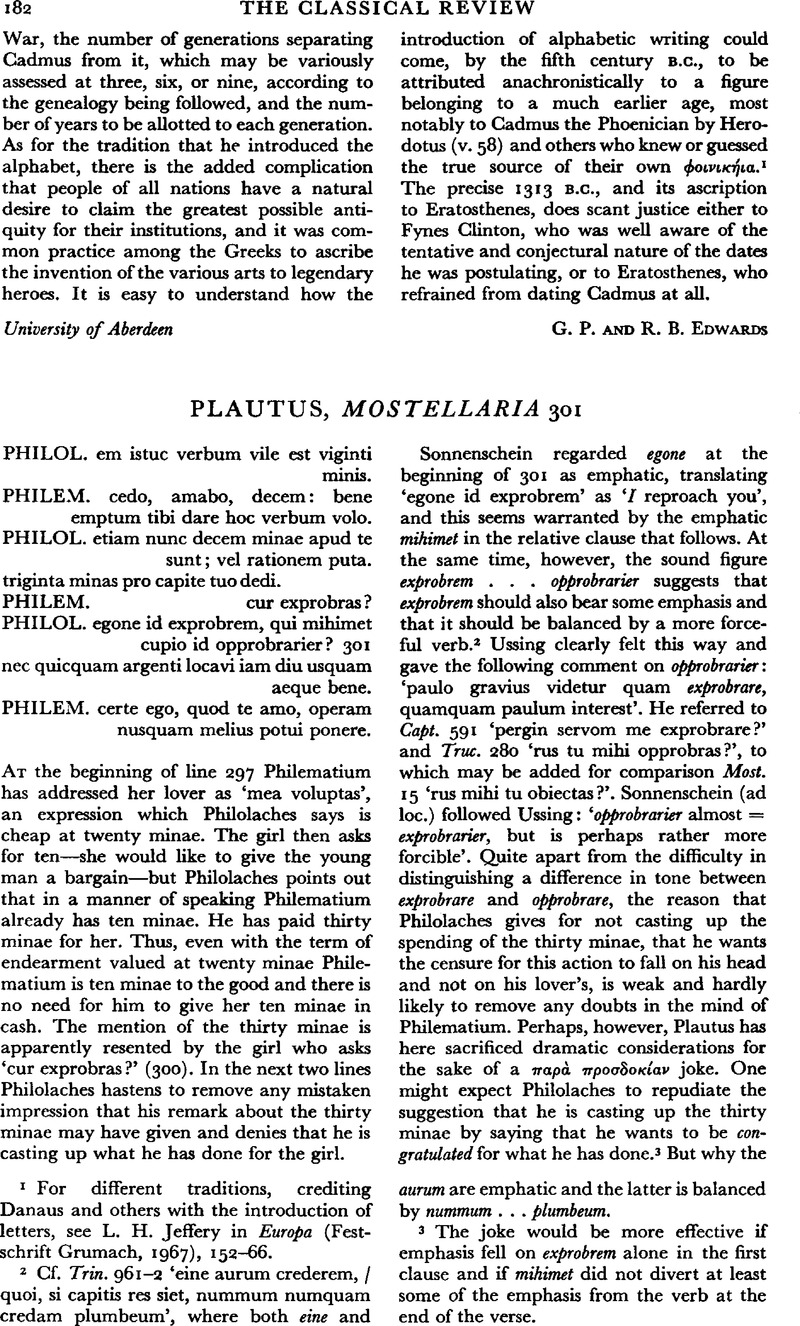No CrossRef data available.
Article contents
Plautus, Mostellaria 301
Published online by Cambridge University Press: 27 February 2009
Abstract

- Type
- Review Article
- Information
- Copyright
- Copyright © The Classical Association 1974
References
page 182 note 2 Cf. Trin. 961–2 ‘eine aurum crederem, / quoi, si capitis res siet, nummum numquam credam plumbeum’, where both eine and aurum are emphatic and the latter is balanced by nummum … plumbeum.
page 182 note 3 The joke would be more effective if emphasis fell on exprobrem alone in the first clause and if mihimet did not divert at least some of the emphasis from the verb at the end of the verse.
page 183 note 1 The Ambrosian Palimpsest is lacking at this point.
page 183 note 2 For further examples see T.L.L. ii. 311. 42; 313.3. See also A. Berger, Encyclopedic Dictionary of Roman Lawn (Trans. Amer. Philos. Assoc. xliii. 2 [1953]), 350, who cites adprobare as a technical term but does not describe accurately how it is used.
page 183 note 3 See F. Schulz, Classical Roman Law, 542; B. Nicholas, An Introduction to Roman Law, 182; H. F. Jolowicz, Historical Introduction to the Study of Roman Law, 308 n. 6.
page 183 note 4 To my knowledge Fay is alone among editors in rejecting opprobrarier. He prints opprobarier, a ἅπαζ λεσ⋯μνον, and translates ‘to be accounted for good’.


